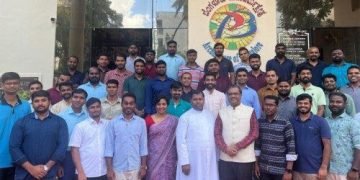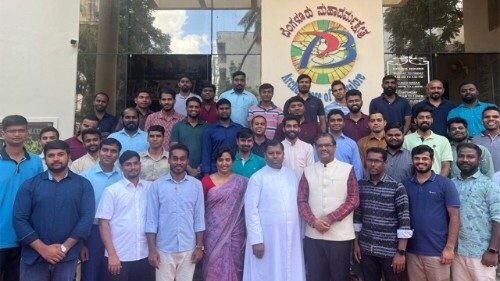By Charles Igwe
A group of forty deacons hailing from St. Peter’s Pontifical Institute recently engaged in a comprehensive 4-day media training program, a pioneering initiative by the Conference of Catholic Bishops of India (CCBI).
In partnership with the Archdiocesan Communications Centre, the training unfolded at AVE Studios, Paalanaa Bhavana, Bangalore, India. These deacons, all in the final phase of their seminary training, participated in the program as part of their pastoral diploma course. The training took place from August 23 to 26.
The curriculum encompassed an array of relevant subjects, including “Modern Christian Apologetics: leveraging media for effective evangelization,” “Integrating Media in Liturgy,” “Digital Media Mission,” “Principles of Civil Communication,” and “Public Relations as strategic intelligence for the 21st century.” The training also delved into media habits within the daily lives of consecrated individuals, Design Thinking, and the identification of resources to cultivate impactful media ministry strategies.
A representative from the Thanjavur Diocese expressed, “This course has honed our ability to connect with the world and reach people just as Jesus did in the past, despite the absence of print or electronic media for publicity.” Deacon A. Walter emphasized, “In today’s tech-savvy media landscape, religious and spiritual organizations harness media coverage to disseminate their teachings for the greater good.”
Addressing the practical aspect, a deacon from the Diocese of Chikmagalur noted, “Interacting with the camera was an intriguing experience; it taught us about posture, gestures, and effective presentation. It also helped us overcome any camera-related apprehensions and digital engagement.”
The attending deacons represented various regions of India and were affiliated with the Servites, Claretians, and the Redemptorist religious congregations.
The collaboration with SIGNIS was highly commended by CCBI Media Apostolate, acknowledging its contribution in enhancing the training’s efficacy for participants from diverse backgrounds.















































